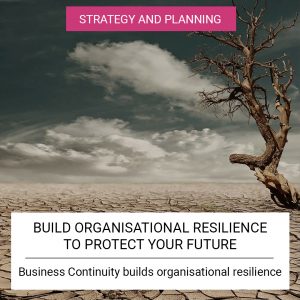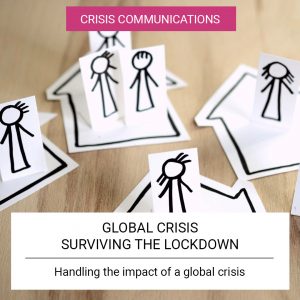
This time in lockdown has shown us what true community spirit is. How will you continue to include corporate social responsibility in your future strategy?
When you think of your business or organisation’s assets, you’ll no doubt think of equipment, land, buildings, machinery, basically anything that’s tangible. However, your most important asset isn’t something you own, it’s something you earn. And if you lose it, it could destroy your whole business.
We’re talking about your reputation; it’s what should matter to you the most. Everything you do, as individuals representing your business, and the business itself, should always take into consideration the impact it might have on your reputation. Day-to-day communication in today’s world of instant news and social sharing, means organisations must always tread really carefully when communicating both internally and externally. As it’s difficult to correct a mis-step in the eyes of the public.
It’s far better to be proactive than reactive when talking about managing your organisation’s reputation. And the best way to do this is to arm yourself with as much knowledge as possible. Know the issues that are present in your industry, and those could affect your company. Assess them to decide the level of risk to your business and whether action should or can be taken. It’s also worth noting the level of interest in an issue by the public, as this is often a driving force for dormant, and seemingly insignificant, issues gaining traction.
A formidable crisis specialist, Carl Courtney, who’s dealt with a multitude of scenarios, including some extremely high profile cases such as the 2006 Securitas robbery and Horse Meat scandal of 2013, prompted this month’s topic by providing his seasoned knowledge of handling a crisis without adversely affecting your reputation, whilst working on a project together recently.
When confronted by crisis, Carl finds that: “Most organisations genuinely believe it ‘will never happen to them’. And as a result, they don’t invest the time and money in being ready for crisis. Crisis should be respected and managed, not feared and ignored.” Whilst we all might prefer to bury our heads in the sand, hoping something will go away is by no means a strategy destined for success.
Crisis can hit any organisation, at any time. Although, the majority will survive a crisis that is handled well. Take last year’s KFC fiasco with outlets across the UK running out of chicken. A potentially reputational, not to mention financially, damaging crisis for the organisation to deal with. And deal with it, they did. Referred to in the PR world as a ‘masterclass in crisis management’, the company used open and honest communication coupled with humour to handle the disastrous situation expertly.
So, once known issues and risks have been established, your next steps are to create a crisis plan and appoint a crisis team to handle any crises that might arise. Training and testing your crisis team is paramount before any real crisis event occurs. Carl describes this process as going from “preparedness to readiness”, which is all part of what he dubs ‘reputational insurance.’
Protecting your reputation should be embedded in every part of your strategy for your business. And with all this talk of crisis and things going wrong, it makes you stop and think: just how ready are you if the proverbial hit the fan?
This article was first published in the Suffolk Free Press, Thursday 9 May 2019.

This time in lockdown has shown us what true community spirit is. How will you continue to include corporate social responsibility in your future strategy?

Business Continuity builds organisational resilience for your business to make sure you’re prepared to handle incidents that affect your business.

Getting media coverage for your brand by pitching to the press is a must-have tactic for a well-rounded PR and Marketing strategy.

A global crisis has impacted every aspect of our daily lives. Let’s take a look at what you can do to keep going and survive the lockdown.
© 2019-2020 All rights reserved
Knight Media Communications Ltd | Company no. 12064990